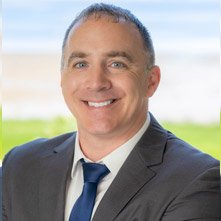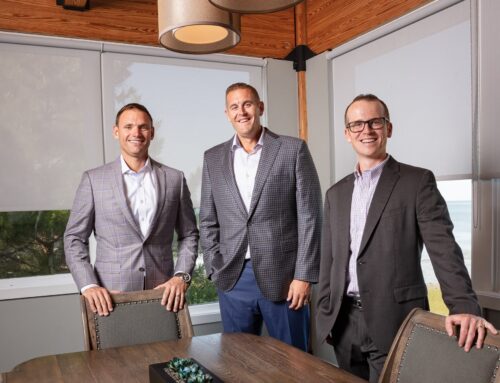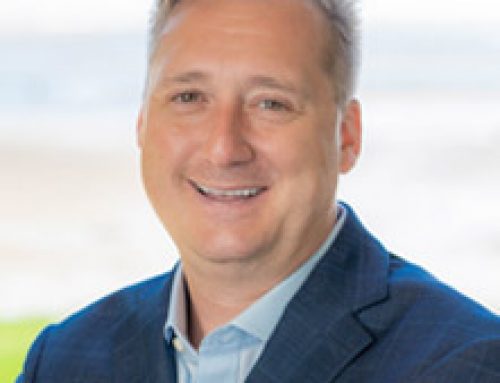
What experience do you have with navigating the complex world of retirement planning?
Throughout the years, I have helped a wide array of individuals and families including those just starting out saving to small business owners to corporate executives. Also, those going through life transitions like getting married, divorced, or when a spouse or family member falls ill or becomes disabled, or even passes away. The transitions through these life events are all so significant… coupled with the transition into retirement.
I started my career in investment management, graduating with a degree in finance before getting my master’s in finance. My goal was to be a mutual fund manager or hedge fund manager. I started at a financial planning firm like SHP as an analyst and trader, researching and trading investment positions in our strategies for client accounts. I went on to become the CIO and began going into many client meetings to discuss more complex investment topics such as market complexities, economic forces, and the role the firm plays in the financial landscape.
But I began to realize that all the work I was doing was behind a screen. I was killing myself to try to “beat the market”. That’s when I awakened to the fact that nothing compares to the value financial planning brings to a family, guiding them through life in good times and bad, and helping them get to where they want to go.
What drove you to the financial services business?
The bottom line for me is helping people. Business was an interest coming out of high school, so I figured learning more about money and finance would allow me to help take care of all of those around me, including my parents and family. Studying at Bentley opened my eyes to all the possibilities that lay ahead for me in the financial markets – it hooked me. When I can apply my skills and passions to help people live the lives they want and achieve their financial goals, this work doesn’t feel like “work” to me… it’s fun!
What do you enjoy the most about working with retirees & pre-retirees at SHP Financial?
SHP is quite different from other advisory firms.
We do financial planning work that considers your unique and personal financial situation whereas other firms really don’t. For instance, pre-retirees and retirees are most at-risk of derailing their future because the wealth you’ve built is at risk of declining right before you must use it for income, erasing potential gains without having the time needed to recover from a downturn. But how to navigate that risk is different for each person.
SHP’s communication with clients is continuous and constant, always in front of clients with timely planning information that is pertinent to their lives.
Each day brings something new and fresh to the work I do. I love the challenge of constructing financial plans that are tailored for each unique individual and family. Seeing the plan through and providing families clarity on their future – something they’ve often never had with other clients – is what makes it all worth it.
What is currently the main concern(s) you hear of from prospects and clients you meet with?
Currently, we see a few main risks that concern our clients:
- Market Volatility
- Running out of Money
- Inflation
- Health Complications
- Increasing Taxes
We help each one of our clients address these risks so that they don’t have to face them themselves and can find comfort in the weight of professional knowledge backing up their decisions to mitigate these risks.
How does SHP Financial help solve the concerns mentioned above, as well as other concerns of those preparing for retirement?
At SHP, we measure market volatility and portfolio risk exposure from when clients begin with us and throughout our relationship. We use the financial risk analysis tool Riskalyze, to help give clients confidence and peace of mind in knowing their upside potential and downside risk in various market environments.
Using our planning software, we can measure, monitor, and test their financial plan to provide clarity on their chances of running out of money, or the pros and cons of how short-term decisions impact their long-term financial success.
We also understand how important it is that all five financial planning pillars – income, investment, tax, healthcare, and legacy – work in lockstep with each other. What most other financial planners don’t factor in is that each pillar is intertwined with the others, so isolating these areas may lead to an inefficient overall retirement strategy. Most people can google certain terminologies or planning ideas but knowing how it all fits together takes planning experience and a deep understanding of the client’s unique situation and future.
What is your best advice for those who will be retiring within the next 10 years?
Get a plan in place. 10 years away from retirement is the perfect time to get serious. It allows you to optimize your cash flow and investments while still in the accumulation period. You can also begin to create a plan for the distribution phase when you’ll need to withdraw from retirement accounts to cover your living expenses.
Understand your portfolio risk level and tolerance for loss. A lot of people have 401(k)s that have been on autopilot for decades. And as the stock markets have done well over the years, people’s investments have gotten riskier as stocks, namely high-growth stocks, became more heavily weighted in their accounts.
Diversify properly. Have accounts for specific goals such as the short term, medium term, and long term. Also, have some accounts that hold safe assets with low growth potential but low downside, along with other accounts that hold more aggressive assets for the long-term.
Develop goals. Try to figure out how your lifestyle will look like throughout your retirement. Ask yourself, “what do I want to do? When do I want to do it?” And put a cost to those things so you can build a “spending plan”, which differs from a budget. Too often people come to us hesitant to spend any money in retirement. But, a proper retirement can empower people to spend and enjoy themselves during their retirement years.
Understand the financial transition as well as the social, emotional, and mental transition that comes with retiring. People spend 30 to 40 years getting up and going to work, being around people, and having a preset purpose and direction. I’ve seen many people struggle with having to define that purpose themselves, especially when they don’t have a group of people around to socialize with that came during their working years. My advice is to actively find that purpose. Develop and rediscover passions. Do what you love. And stay active both physically and mentally – people’s minds can change rapidly if not exercising their mental muscles.
What is your best advice for those who are already retired?
You’re not done planning! I’ve met with people throughout my career who say that they’re retired, have a pension, and are on Social Security, and question whether they need a financial planner. But it’s important to know that the benefit of planning only comes to fruition when the plan is executed successfully. A successful retirement isn’t just claiming Social Security or letting your accounts run their course. Actively managing your retirement, keeping a watchful eye on market activities and retirement planning legislation, and tax planning are all among many critical components to constantly watch out for in today’s environment.
Keep an eye on expenses. Reassess how you’re doing in terms of spending. Are you on track with your spending goals? Are you spending a little more or less than expected? How does your spending plan fit with your overall goals?
Don’t chase returns. Managing volatility during your retirement years when you’re drawing from your accounts is crucial in making sure your money lasts. If you don’t, you may not be able to live the life you planned for in retirement.
And as stated above, stay active!
Can you cite an example of a specific, complex problem and how you solved it?
There was a time when a client’s husband had an unexpected heart attack, then a stroke, and another stroke. It was out of nowhere. Their financial plan was still in the early stages of development but the income part of it was strong. Her husband was in the hospital, and his health didn’t look good. It seemed like he would be heading into a nursing home after the hospital stay. So, she and I reviewed all her options and plan together. We brought in an estate planning attorney and Medicaid consultants as well to make sure our plan was built around her and her husband’s specific needs. Then we worked quickly to protect her financial assets from being lost to a nursing home, ensuring that she could continue to keep her lifestyle intact. By using an immediate annuity and moving around how their assets were titled, they were able to pay off their mortgage and her husband was able to get on MassHealth, which helped her protect their wealth from being overspent and depleted.
Why is it so important for those in or near retirement to speak to a financial professional?
Accountability. A financial advisor can provide organization and can help We can help ensure people stay on track with their financial to-dos and decisions, helping get things done that need to be done. Procrastination can ruin people and families’ financial lives, especially when it comes to estate planning.
Third-party guide. As financial advisors, we are unbiased guides for families when it comes to what money decisions are smart, and we aren’t emotionally tied to their decisions. We provide the education, balanced pros and cons, and unique financial solutions that they may never have heard of because they aren’t in the financial planning world. At the end of the day, it is up to our clients what to do, we never take away their financial freedom, but we do walk each client through the details of their decisions and provide clarity, expertise, and peace of mind.
Understanding the execution. The real value of a financial advisor is in the professional execution of a financial strategy. Financial advisors can oversee the year-in year-out, day-in, and day-out decisions that can make or break a financial plan. An advisor can also prevent the emotional reactions during declining markets or greed during rising markets from making mistakes with your financial plan. Protecting and growing, understanding the full range of options, and guiding families through multigenerational wealth decisions is what an SHP financial advisor can bring you.
Investment Advisory Services are offered through SHP Wealth Management LLC., an SEC registered investment advisor. Insurance sales are offered through SHP Financial, LLC. These are separate entities, Matthew Chapman Peck, CFP®️, CIMA®️, Derek Louis Gregoire, and Keith Winslow Ellis Jr. are independent licensed insurance agents, and Owners/Partners of an insurance agency, SHP Financial, LLC.. In addition, other supervised persons of SHP Wealth Management, LLC. are independent licensed insurance agents of SHP Financial, LLC. No statements made shall constitute tax, legal or accounting advice. You should consult your own legal or tax professional before investing. Both SHP Wealth Management, LLC. and SHP Financial, LLC. will offer clients advice and/or products from each entity. No client is under any obligation to purchase any insurance product.





